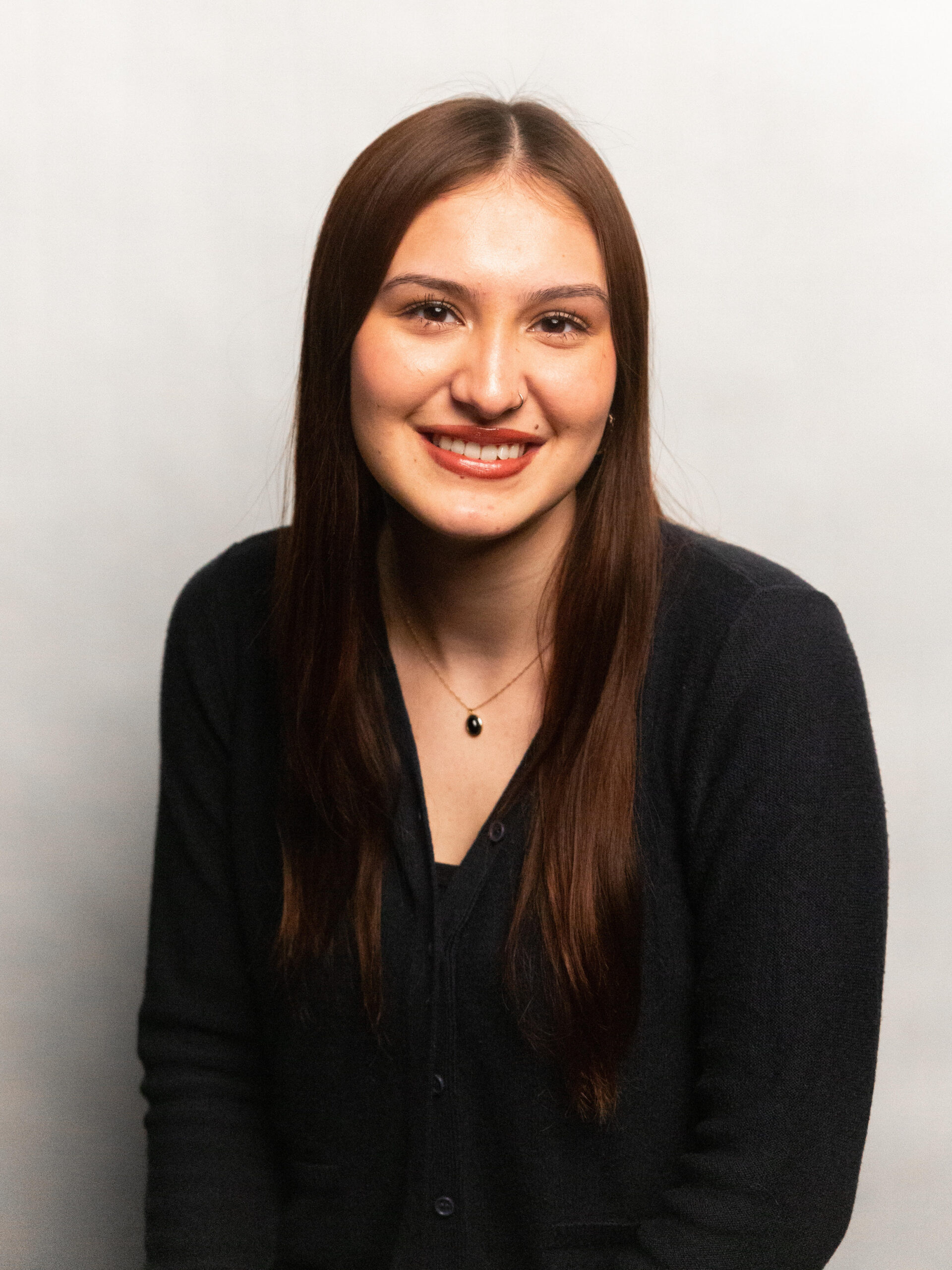Sofia Esparza is a third-year student at the University of Minnesota studying journalism and Spanish. She was born and raised in Eau Claire, Wisconsin and her father is from Monterrey, Mexico.
Byline: By Trent Curry (Writer)
“I grew up, I guess, feeling a little bit different, because I grew up in rural Wisconsin. I grew up in Eau Claire, and I have a white mother who grew up in a small town in Wisconsin, and my only grandparents on that side, or the only grandparents I have around my mom’s side. So I was pretty connected with Wisconsin and white culture and everything, but a major anchor in my Mexican heritage was my dad. I think he taught me a lot about family. Family is like a huge thing in Latino culture, and he kind of always taught me to prioritize that. I have seven siblings, so that has always just been the number one thing in my life.
I feel like my dad again, I came from a really big family, and he kind of always prioritized that. So I have grown into prioritizing that. I think that I dream of having my own family, and I hope that I prioritize my relationship with my siblings a lot, and we’re all two years apart, so it’s kind of easy to do that. Also, both of my parents met on a mission trip in Monterrey, Mexico. That’s how they met.
Christianity and faith has always been a huge part of my upbringing. Although I don’t practice currently, I still am expected to go to church when I go home. There’s certain aspects that it’s really hard for me to detach myself from. I mean, I have a Bible in my bedroom. When things get really bad, like a really bad test I’m gonna bomb, I’ll say a quick prayer, so I think those things, still hold a lot of weight on me, even though I don’t agree with a lot of what my parents agree with, I guess. I think that so much of that came from the way my dad grew up in the church. He had eight siblings. So he came from a really big family as well, so both family and religion, that’s all he knew was right. He would go to church like, four or five times a week, and I thankfully didn’t have to do that growing up. I think that his upbringing there and what was expected of him and his family in Mexico was kind of put on me a little bit. And that’s definitely affected the way that I kind of think existentially. I guess there are always doubts in my mind about what I should believe. Even though I’m 21, I don’t have those pressures, trying to think about something else. Obviously growing up mixed ethnicity, it was pretty difficult, because I didn’t grow up speaking Spanish, but I have an ethnic name, and I don’t look completely white, and I grew up in Wisconsin. Where there’s not many people of color, as it is, so I felt like I stuck out like a sore thumb a little bit. But then I still kind of felt disconnected from my dad’s heritage, since we didn’t visit the family too often because we had so many kids, so we couldn’t fly to drive.
“I think that my dad is the smartest person I know. I think that he has so much wisdom, and I think that he is consistently undermined at his job because of the way he looks, because he has an accent. And I think that if there’s one thing I can tell people, it’s you can learn so much from people that grew up differently than you, that have different experiences than you, that have a different education than you.”
This interview has been edited for length and clarity.
Interview by Trent Curry

